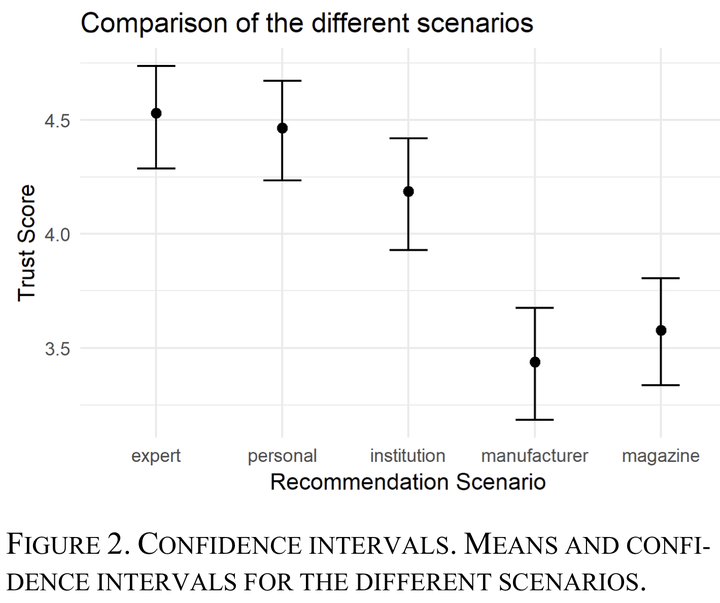
Abstract
Over the last two decades, the Internet has established itself as part of everyday life. With the recent invention of Social Media, the advent of the Internet of Things as well as trends like “bring your own device” (BYOD), the needs for connectivity rise exponentially and so does the need for proper cyber security. However, human factors research of cyber security in private contexts comprises only a small fraction of the research in the field. In this study, we investigated adoption behaviours and trust in cyber security in private contexts by measuring - among other trust measures - disposition to trust and providing five cyber security scenarios. In each, a person/agent recommends the use of a cyber security tool. Trust is then measured regarding the recommending agent. We compare personal, expert, institutional, and magazine recommendations along with manufacturer information in an exploratory study of sixty participants. We found that personal, expert and institutional recommendations were trusted significantly more than manufacturer information and magazine reports. The highest trust scores were produced by the expert and the personal recommendation scenarios. We argue that technical and professional communicators should aim for cyber security knowledge permeation through personal relations, educating people with high technology self-efficacy beliefs who then disperse the acquired knowledge.